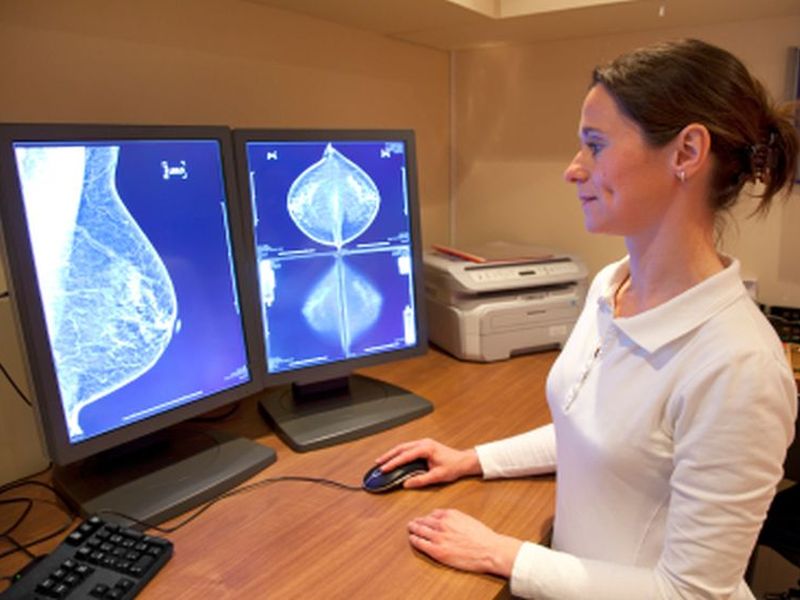

Software Speeds Up Analysis of Breast Cancer Risk: Study
Doctors were 30 times slower reading mammograms, researchers reportThursday, September 22, 2016

THURSDAY, Sept. 22, 2016 (HealthDay News) -- Software that quickly analyzes mammograms and patient history to determine breast cancer risk could save time and reduce unnecessary biopsies, according to the developers of the technology.
The software was used to evaluate mammograms and pathology reports of 500 breast cancer patients. It did so 30 times faster than doctors and with 99 percent accuracy, the Houston Methodist Cancer Center researchers said.
Manual review of 50 patient charts took two doctors 50 to 70 hours, while the software reviewed 500 charts in a few hours, saving more than 500 physician hours, according to the study.
"Accurate review of this many charts would be practically impossible without [artificial intelligence]," said team co-leader Stephen Wong Wong. He's chair of the department of systems medicine and bioengineering.
"This software intelligently reviews millions of records in a short amount of time, enabling us to determine breast cancer risk more efficiently using a patient's mammogram. This has the potential to decrease unnecessary biopsies," Wong said in a cancer center news release.
The study results were published recently in the journal Cancer.
About 12 million mammograms are performed each year in the United States, according to the federal Centers for Disease Control and Prevention. Fifty percent yield false-positive results, according to the American Cancer Society, which means one in every two healthy patients is told she has breast cancer.
When mammograms yield suspicious findings, breast biopsies are recommended. More than 1.6 million breast biopsies are performed annually nationwide, but about 20 percent are unnecessarily performed due to false-positive mammogram results of cancer free breasts, the cancer society says.
This new software may help doctors better evaluate a patient's breast cancer risk, the Houston Methodist researchers said.
SOURCE: Houston Methodist Cancer Center, news release, August 2016
HealthDay
Copyright (c) 2016 HealthDay. All rights reserved.
News stories are provided by HealthDay and do not reflect the views of MedlinePlus, the National Library of Medicine, the National Institutes of Health, the U.S. Department of Health and Human Services, or federal policy.
- More Health News on:
- Breast Cancer
- Mammography




























.png)











No hay comentarios:
Publicar un comentario